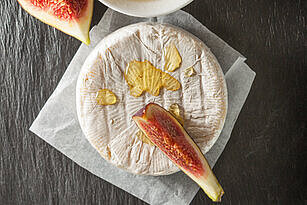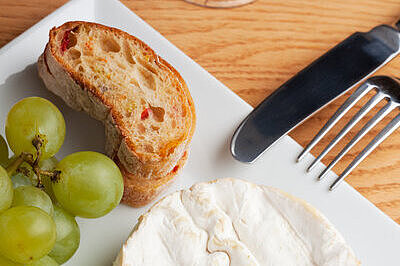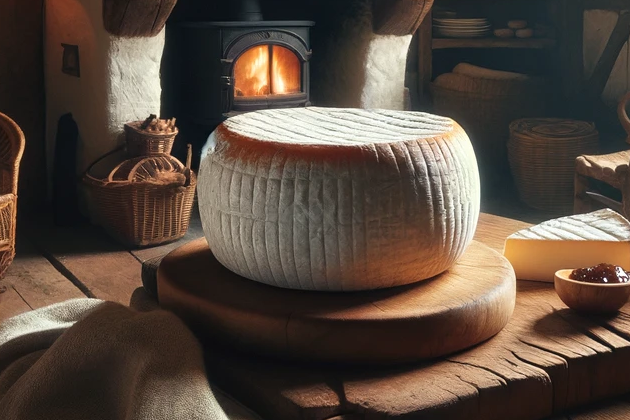Coulommiers

What is Coulommiers?
Coulommiers is a soft cheese that is made in a similar way to Brie, but is slightly smaller in shape. It is characterized by a flowery, edible rind and a creamy, slightly nutty interior. Traditionally, Coulommiers is made from cow's milk and undergoes a ripening process that develops its characteristic flavor and texture.
Potential benefits of Coulommiers for dogs
Nutritional content
In moderate amounts, coulommiers can be a source of proteins and fats that are essential to a dog's diet. Proteins are important for building and repairing body tissue, while fats provide energy.
Acceptability and taste
Many dogs show a preference for cheese, and Coulommiers could be used as an occasional treat or for medicating, thanks to its appealing taste and creamy texture.
Risks and disadvantages
Lactose intolerance
The majority of dogs are lactose intolerant, which means that they have difficulty digesting milk sugar (lactose). Eating products containing lactose, such as coulommiers, can lead to digestive problems, flatulence, diarrhea and vomiting.
High fat and calorie content
Coulommiers is high in fat and calories, which can lead to weight gain and associated health problems such as obesity and pancreatitis if consumed in excess.
Risk of milk protein allergies
Some dogs can be allergic to milk proteins, which can lead to allergic reactions if they consume coulommiers or other dairy products.
Danger from the rind
The edible rind of coulommiers can be difficult for dogs to digest and can potentially cause gastrointestinal blockages or upset.
Guidelines for feeding coulommiers to dogs
- Moderation is key: If you decide to give your dog coulommiers, it should only be in very small amounts to minimize the risk of digestive problems and weight gain.
- Monitor the reaction: Watch for signs of intolerance or allergic reactions after eating coulommiers and consult a vet if there are concerns.
- Avoid the bark: It is advisable to remove the bark to reduce the risk of gastrointestinal upset.
- Consider the overall diet: Coulommiers should never form a significant part of a dog's diet, but should at best serve as an occasional supplement to a balanced diet.
While Coulommiers is a delicious delicacy for humans, caution is advised when feeding it to dogs. Due to the risks associated with lactose intolerance, high fat and calorie content and possible allergic reactions, it is important to use coulommiers only in very moderate amounts. A balanced diet specifically tailored to your dog's needs remains essential for his health and well-being.
If you notice any signs of hypersensitivity or poisoning in your dog, you should see your vet immediately. We are not a substitute for a vet, but we try to be as accurate as possible. Every dog reacts differently and we recommend you get a second opinion or consult your vet if in doubt.
Stay healthy and take good care of your four-legged friend!😊
Similar to Coulommiers
Brie is a soft cheese from the blue cheese family. It is made from pasteurized or raw cow's milk and mixed with lactic acid bacteria and mould. The mold rind forms during the ripening process and...
Camembert contains a number of nutrients that are important for dogs. These include Protein: Camembert is a good source of protein for dogs, helping to build and maintain muscles, skin, coat and...
Chaource is a French soft cheese made from cow's milk and produced in the commune of the same name in Champagne-Ardenne. This cheese is known for its moist, creamy texture and the white, edible rind...
Cheese is a favorite treat for many dogs, but not all cheeses are equally well tolerated by them. As a general rule, the more lactose (milk sugar) a cheese contains, the harder it is for dogs to...



